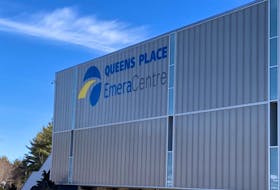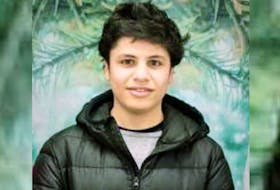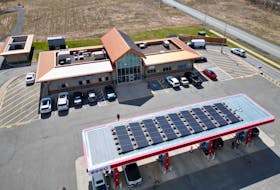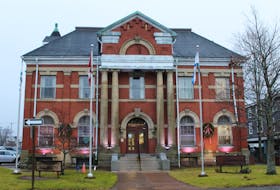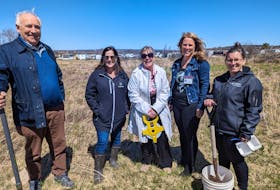The science fair is hosting students from elementary level to high school level grades.
Science fair committee chair Kim Frenette said one job for science teachers is to inspire their students to get involved and create a project.
One main goal is to make what students have learned applicable to their everyday lives, she said.
“So the science fair is a way to let the kids apply what they learn in science to some situation in everyday life. And they get to pick the topic that they want to study.”
Frenette has been involved for 25 years with regional fairs, plus many school fairs.
“It’s my way of keeping this thing going because I really think it’s important to actually have a science fair, for kids to get inspired and see that science is relevant and exciting and things that they can actually use every day.”
Chief judge of the fair Parker Wong said the science fairs mean kids can start doing projects now and will hopefully carry on interest in later years.
“We’re hopefully looking at the scientific leaders of the future.”
He said the fair is definitely a way to help students learn outside the classroom, from choosing a topic and doing the research and learn from it.
“It helps with independent learning.”
Frenette said science fair projects are a way of learning how to problem solve.
Kids will learn about problem solving and critical thinking in general, which can help them in every aspect of life, she said.
“They find out that sometimes they think something is going to work one way and it doesn’t so they have to problem solve how to overcome that. And it really does teach them things in life skills, so it’s really important.”
She said she enjoys seeing the enthusiasm about the topics some students choose.
“It’s a real joy to see that they’re excited about something that they’re learning in school.”
The science fair is hosting students from elementary level to high school level grades.
Science fair committee chair Kim Frenette said one job for science teachers is to inspire their students to get involved and create a project.
One main goal is to make what students have learned applicable to their everyday lives, she said.
“So the science fair is a way to let the kids apply what they learn in science to some situation in everyday life. And they get to pick the topic that they want to study.”
Frenette has been involved for 25 years with regional fairs, plus many school fairs.
“It’s my way of keeping this thing going because I really think it’s important to actually have a science fair, for kids to get inspired and see that science is relevant and exciting and things that they can actually use every day.”
Chief judge of the fair Parker Wong said the science fairs mean kids can start doing projects now and will hopefully carry on interest in later years.
“We’re hopefully looking at the scientific leaders of the future.”
He said the fair is definitely a way to help students learn outside the classroom, from choosing a topic and doing the research and learn from it.
“It helps with independent learning.”
Frenette said science fair projects are a way of learning how to problem solve.
Kids will learn about problem solving and critical thinking in general, which can help them in every aspect of life, she said.
“They find out that sometimes they think something is going to work one way and it doesn’t so they have to problem solve how to overcome that. And it really does teach them things in life skills, so it’s really important.”
She said she enjoys seeing the enthusiasm about the topics some students choose.
“It’s a real joy to see that they’re excited about something that they’re learning in school.”


